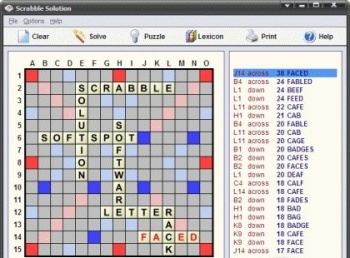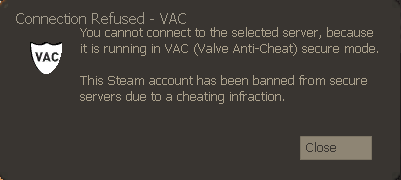Online Cheating
Online Cheating can be defined as the act of “pretending to obey the rules of the game but secretly subverting them to gain advantage over another player."[1] Aside from the virtual world, cheating online can happen in relationships and also in the academic community. With the growth in online databases, people in academic settings
Contents
Online Gaming
In the virtual world, cheating occurs in games where players can play against the computer or against other players either live on the site or through “asynchronous games” where the players do not need to be online at the same time. [2]
Online Game Helpers
Online Game Helpers are used to gain an advantage over the opposing player while playing an online word game. Scrabble solvers and other “game helpers” are readily available online and easy to use. For example, scrabble solvers take a set of letters and produce a list of words that can be made with those letters which the player can then use in their game. Currently, the rise in popularity of game Words with Friends an interactive Scrabble game played between two players, has also seen a rise in online cheating as users have the opportunity to download a number of online game helpers to their devices. Words With Friends is currently available on Android, iPhone, Amazon Kindle, Facebook, and a slew of other platforms.
According to its website, A2zwordfinder (another online game helper) is used for “quickly finding words while you’re solving word puzzles and games of all kinds [3]." A2zwordfinder offers a free online dictionary for crosswords, a Scrabble dictionary, Literati helper, Jumble solver, WordOx helper, and anagram generator.
The website [1] is a helper site used for games such as Scrabble, Anagrams, Jumble Words, Text Twist, Word Whomp, Chicktionary, Scrabulous, Wordscraper, and Lexulous. It allows the user to input the letters one has in his or her word game and the program will generate every word possible.
Example Word Games with Online Helpers
- Acrophobia
- Anagrams
- Crosswords
- Hangman
- Scrabble-like games
- Vocabulary quizzes
Modifications/Hacks
See hacks
Getting Away With It
It’s almost impossible to ensure that the person you are playing against is not cheating, and proving that someone is cheating online is also difficult to do. One of the appeals of playing an online game is that your identity is hidden. The anonymity makes it much easier to cheat and makes people feel more comfortable about doing it since it is almost guaranteed that they will never be found out (see: Anonymous Behavior in Virtual Environments). According to a writer for Gamasutra, a respected gaming design website, “the anonymity and artificiality of the Internet seems to encourage a moral vacuum where otherwise nice people often behave in the worst possible way."[4] Likewise, the nature of online gaming facilitates online cheating because the cheater and the other players are not in the same room together. For example, if a group of people are playing Scrabble in a room together, players can physically see another player looking at a Dictionary or using an unscrambler. However, in the online world, players cannot see each other, so there is no way of knowing what other players are doing in between turns.
Consalvo Study
It is often subjective as to what actions constitute cheating. There have been debates over whether cheating in an online game in which you are playing against yourself is actually considered cheating [1] According to Consalvo, there are four common reasons gamers give for cheating: "I was stuck", "It's fun to play God", "Hitting Fast Forward", and "Being An Ass". [5]
Mia Consalvo, an Associate Professor of Telecommunications at Ohio University conducted a study in which twenty-four self-identified game players ranging from ages 14 to 41 were interviewed. During the interviews, participants were asked to define cheating in their own terms. In every definition given by the participants, there seemed to be a general feeling that “cheating creates an unfair advantage for the cheater." In most cases, this definition was in reference to multiplayer games. However, several participants also defined cheating in the context of single-player games as being just an “unfair advantage in general.” In the article, a purist is considered as a player that believes “anything other than a solo effort in completing a game is cheating. Those players define cheating to be when “you use external sources to complete a game.” Even some of the participants who were considered purists maintained that it is only acceptable to use outside resources if “the player has already tried repeatedly and is stuck [5]."
At the complete opposite end of the spectrum are those who believe cheating can only exist if there is another player involved. In this case, players believe that “someone has to be worse off because someone else took unfair advantage.” In other words, these people only consider something as cheating not if a person gains an advantage, but if another person is at a disadvantage compared to the person cheating.
Ethical Implications
Gaming/Prevention
Cheating in online games has several ethical implications. While many feel that cheating is fun and exciting, others maintain that it ruins the integrity of competition and self-fulfillment.
- See also: Punishments in Virtual Environments
Without prevention (anti-cheat), players would have to simply avoid the cheaters in order to get a fair and fulfilling playing experience. This however is not a very feasible option, as there are a large number of players who choose to cheat in the online environment.
One way to police an online environment is for servers to have admins who monitor the actions of games on their specific server. Admins could immediately kick and/or ban the cheaters. However, if the admin was not present, these cheaters could get away with their actions.
Another method would be to implement a vote-kick feature, which allows the players to vote if a certain player should be removed from the server. Most likely, if that specific player was cheating, then all the other players would to remove them. However, kicked players could most likely re-join the server immediately. Also the vote-kick feature could be used to ill-intent, used against players that did not deserve to be kicked.
In order to get past the shortcomings of admin policing and vote-kicking, programs have been developed that look for players who cheat. These programs can tell if game code has been altered and automatically kick/ban the cheaters who cheated. These programs can be implemented in the game or on the server, and are far more accurate and efficient in detecting cheaters than admins or vote-kicking. One such system is Valve Anti-Cheat (VAC), which will ban a player who connects to a VAC protected server with a known cheat, which will ban that player from playing on any server that is VAC protected. VAC bans are non-reversible [6]
Cheating in Relationships
In committed relationships, infidelity is much easier in an online setting. The Internet is now the most common place for infidelity. Many men and women enter the Online Dating world for romantic thrills. Many of these interactions turn in to affairs. Many studies show people are just has hurt by cheating online as cheating in the real world. Not only does infidelity occur through online dating services, but also through created avatars in virtual worlds. Sites like Second Life have been known to be a common setting for users to engage in sexual relationships through created avatars. Users can interact with other users through avatars in virtual communities. In these virtual settings, avatars can be married, have a family and even trade good and services. A person can literally create a second life, with a different spouse online.
Academic Cheating
With the availability of information online, academic integrity is very easily compromised schools and universities all over the world. Plagiarism is as simple and copying and pasting from a website to a student's paper. Most libraries and archives are going paper-less and putting all resources in online databases. Articles can be easily found and copied into college papers. [7]
Although technology has in some ways made academic integrity more difficult to obtain, new programs are being created to detect online cheating. Sites like turning.com scan papers against large databases of published works to check for plagiarism. Many school distrust are using this tool in their middle school and high school classes.
See Also
- Cheating
- Cyberlaw
- Information Ethics
- Information Integrity
- Ethics in Computer & Video Games
- Online Dating
- Second Life
References
- ↑ 1.0 1.1 http://www.wired.com/gaming/virtualworlds/commentary/games/2007/04/gamesfrontiers_0423
- ↑ http://lexulous.com/about_lexulous.php
- ↑ http://A2zwordfinder.com
- ↑ http://www.gamasutra.com/view/feature/3149/how_to_hurt_the_hackers_the_scoop_.php
- ↑ 5.0 5.1 Consalvo, M. (2007). Cheating: gaining advantage in videogames. Cambridge, MA: The MIT Press; annotated edition edition.
- ↑ http://support.steampowered.com/kb_article.php?ref=7849-RADZ-6869
- ↑ Snapper, J., “The Matter of Plagiarism: What, Why, and If,” in Himma and Tavani (2008), pp. 533-552.

